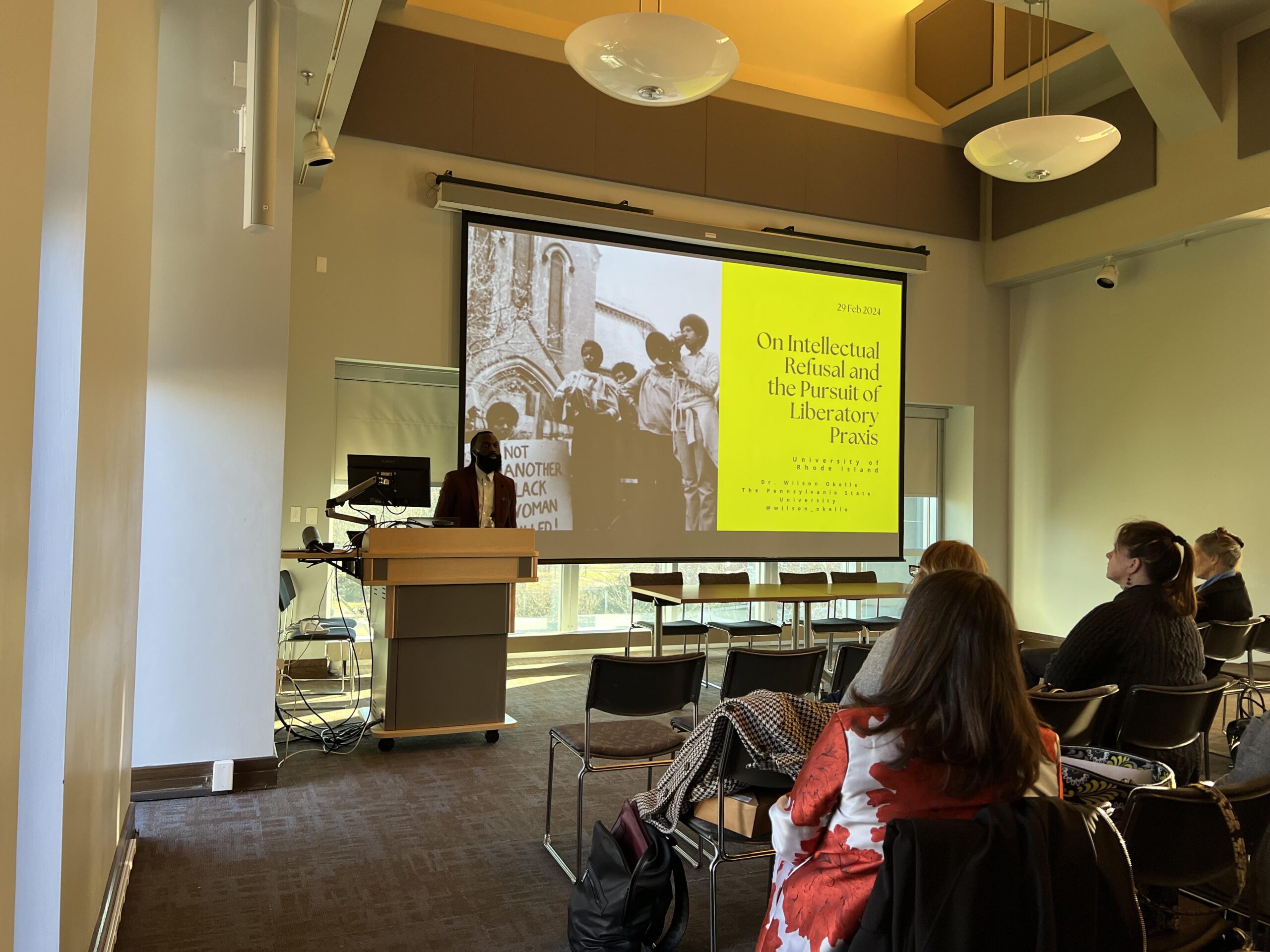University of Rhode Island alumnus Wilson Okello gave a speech focusing on his research on the disenfranchisement of black students and faculty on Thursday.
Okello is an assistant education professor at Pennsylvania State University, spoken word artist, social justice activist and black youth early development researcher. He has published several academic papers and articles in his years as an interdisciplinary academic.
“My work is a meditation on what I might call otherwise attunement, looking for and locating methods of black liveliness,” Okello said.
Okello started with a moment of silence for a land acknowledgment for the grounds URI stands on, something being done more by URI faculty and event staff. After the acknowledgement he reflected on his time as a graduate student at URI and how it felt to be back.
“It’s a gift to be back to these institutions and grounds which have been so instructive to the person, scholar and artist I am,” Okello said.
As a black researcher, Okello said his unique experiences have changed his work as he navigates a field that he worries was not built for someone like him.
“Anti-blackness is located in society but also in higher education who might understand white institutions and carriers and vessels of anti-blackness,” Okello said.
Okello cited the unwarranted arrest of black faculty, threats of cutting locs, over-policing of IDs, scholarships, promotion packages and how some black scholars are refused tenure. Okello later mentioned how his young child recently started saying the word “no,” and how he found a profoundness in the short statement.
“To live as black is to live in this ongoing and unfinished project of emancipation to claim dignity,” Okello said. “It’s to demand an ongoing ‘no’ against policies and practices judicial and extrajudicial that infringe on the space, the times, the energy, and the movements of black people.”
This idea of “no” is linked to the principle of refusal, Okello said. He concluded by connecting the idea of refusal to the idea of dangerous creativity. The practice of thinking outside the boxes of society to make a more equitable and free world.
“Refusal, what I am trying to get us to understand is more than just the rejection of an idea, but a considered vocabulary from, how I think about how to teach,” Okello said.
Okello also spoke on many different topics of humanity and ethics. He framed his speech around an email a former student sent to him after the tragic death of 17-year-old Trayvon Martin by law enforcement. Okello throughout the speech discussed his humanity and blackness through historical viewpoints and spoken word.
“Perhaps there is something to be said about loving and living and relating and being compassionate and breathing,” Okello said.
URI Professor and Associate Dean of Research and Academic Affairs Annemarie Vaccaro introduced Okello before his speech, listing many of his accomplishments and accolades.
“His work pushes the boundaries of historically normative research in terms of process, content, and product,” Vaccaro said.
Dean of the Feinstein College of Education, Danielle Dennis, along with Vaccaro invited Okello for this speech. They have been spending this year celebrating the year of education, since the College of Education is new. Each month they have had an event about education, and when thinking of speakers, Vaccaro mentioned Okello, Dennis said.
Okello is aware of reported systemic issues in education and is interested in preparing new teachers to confront these issues, Dennis said.
“We want people that go and see the whole child, and not see the deficits of particular children,” Dennis said. “We need to keep asking questions and we can’t settle on our perception or a solitary experience.”
The year of education is coming to a close with Okello’s speech marking the end of the month, with the midpoint of the academic year in sight. To stay updated with the happenings of the Feinstein College of Education check their department website for news.
To get updates on the Feinstein College of Education, check the URI Events Website for more events and news.

